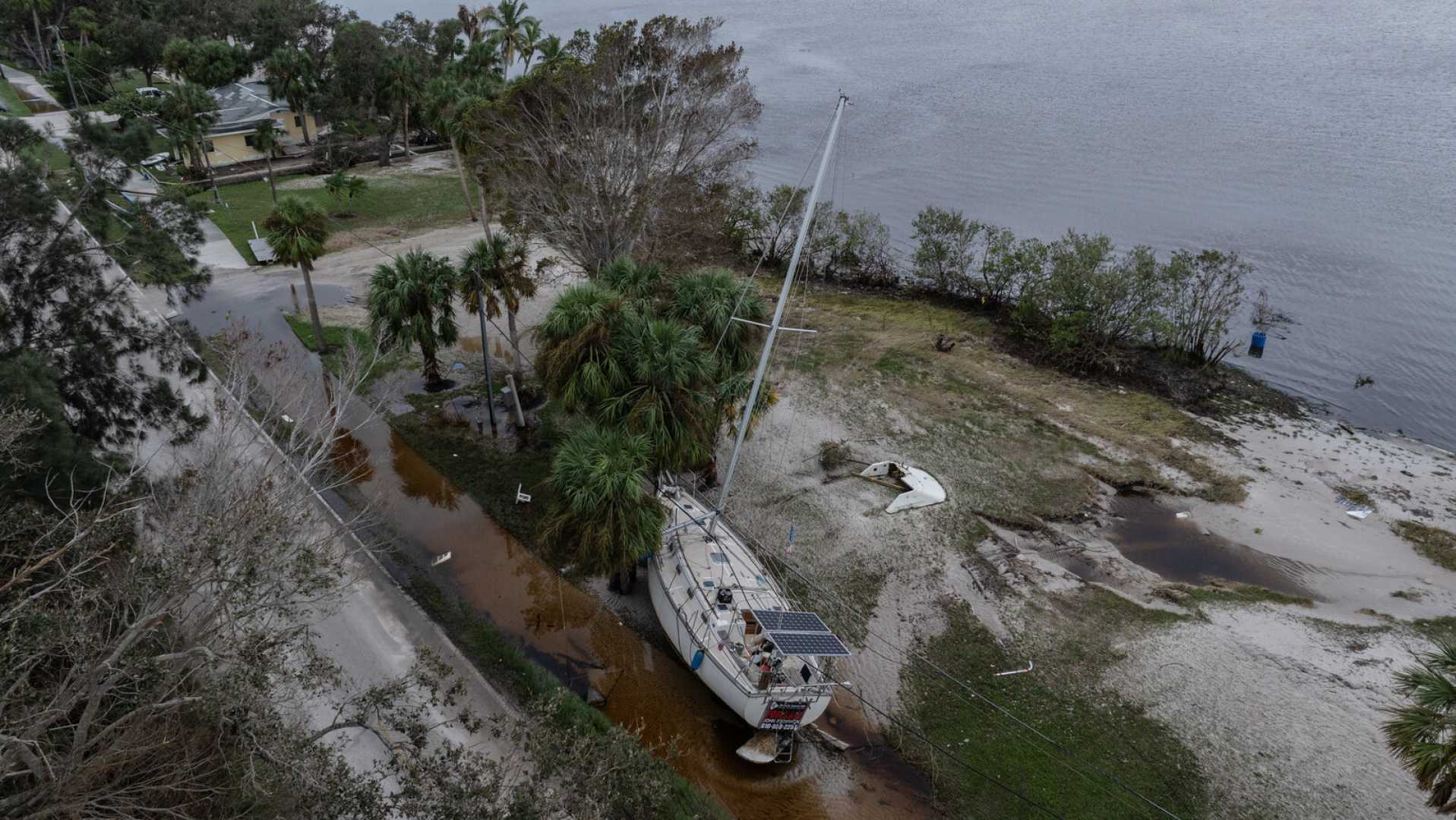News
Hurricane Milton Causes Devastation in Florida, Claims 14 Lives

Residents across Florida have been left reeling from the aftermath of Hurricane Milton, a Category 3 storm that has claimed at least 14 lives and led to widespread destruction. The storm, which began as a Category 5 over the Gulf of Mexico, made landfall on Wednesday night near Siesta Key with winds reaching 120 mph.
The hurricane unleashed historic rainfall and tornadoes, particularly impacting the Tampa Bay area. Reports indicate that the Tampa Bay Rays’ St. Petersburg field is among the facilities severely damaged. According to rescue operations conducted on Thursday, hundreds of people have been rescued, but the extent of the storm’s destruction is still being assessed.
Experts had previously warned that Hurricane Milton could be one of the deadliest and most destructive storms to hit in recent years. This devastation comes shortly after Florida was struck by Hurricane Helene, adding to the challenges for residents as they worked to recover from previous damage.
The toll of Hurricane Milton is still evolving, with ongoing search and rescue operations. The death count currently stands at 14, but authorities remain vigilant as the situation develops. Milton’s impact is set against past major hurricanes, including Hurricane Katrina in 2005, which resulted in 1,392 deaths, primarily in Louisiana, and Hurricane Helene, which recently caused over 228 deaths.
Hurricane-induced damages are historically extensive, and Milton is no exception. While the current financial toll remains under evaluation, Hurricane Helene recently caused insured and uninsured losses estimated between $30 billion to $47 billion.
Power outages, a common consequence of hurricanes, have hit hard with Hurricane Milton. Outage tracker PowerOutage.US reported that mid-Thursday, massive power outages affected central and western Florida, including Hillsborough and Pinellas Counties. Florida Governor’s office notes that cooler Atlantic waters later in the season might not curb future hurricane formation entirely.
The Gulf of Mexico’s record warm waters have intensified the season’s hurricane activity, exemplified by Hurricane Milton’s rapid strengthening. The warming waters have been undeniably linked to climate change, potentially contributing to stronger and more frequent hurricanes.
AccuWeather provided early damage estimates, noting that economic losses could range from $160 billion to $180 billion. With conditions ripe for further tropical development, Florida faces continued vulnerability as the Atlantic hurricane season extends until November.












